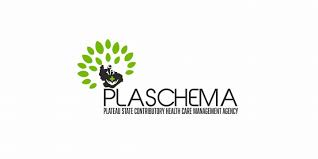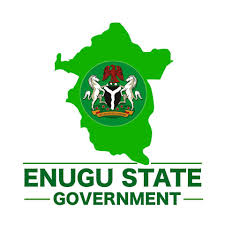News
FG, States, LGs share N714.629bn for March
By Matthew Denis
The Federation Account Allocation Committee (FAAC) at its Meeting shared a total sum of N714.629 billion to the three tiers of government as Federation Allocation for the month of March, 2023.
From the stated amount inclusive of Gross Statutory Revenue, Value Added Tax (VAT) and Electronic Money Transfer Levy (EMTL), the Federal Government received N276.141 billion, the States received N232.129 billion, the Local Government Councils got N171.257 billion, while the Oil Producing States received N35.102 billion as Derivation, (13 per cent of Mineral Revenue).
The Communiqué issued by the Federation Account Allocation Committee (FAAC) at the end of the meeting indicated that the Gross Revenue available from the Value Added Tax (VAT) for March 2023, was N218.786 billion, which was a decrease from the amount distributed in the preceding month.
From that amount, the sum of N8.707 billion was allocated for Cost of Collection and the sum of N7.386 billion given for Transfers, Refunds and Consultancy fees. The remaining sum of N202.693 billion was distributed to the three tiers of government of which the Federal Government got N30.404 billion, the States received N101.347 billion, Local Government Councils got N70.943 billion.
Accordingly, the Gross Statutory Revenue of N638.673 billion received for the month was higher than the sum received in the previous month of February, 2023. From that amount, the sum of N22.044 billion was given for Cost of Collection and a total sum of N119.181 billion for Transfers, Refunds and Consultancy fees. The remaining balance of N497.448 billion was distributed as follows: Federal Government was allocated the sum of N243.564 billion, States got N123.539 billion, LGCs got N95.243 billion, and Oil Derivation (13 per cent Mineral Revenue) got N35.102 billion.
Also, the sum of N15.092 billion from Electronic Money Transfer Levy (EMTL) was distributed to the three (3) tiers of government as follows: the Federal Government received N2.173 billion, States got N7.244 billion, Local Government Councils received N5.071 billion and the sum of N0.604 billion was allocated for Cost of Collection.
Petroleum Profit Tax (PPT), Companies Income Tax (CIT), Oil and Gas Royalties, Import and Excise Duties, Electronic Money Transfer Levy (EMTL) all increased remarkably, while Value Added Tax (VAT) decreased considerably.
According to the Communiqué, the total revenue distributable for the current month of March, was drawn from Statutory Revenue of N497.448 billion, Value Added Tax (VAT) of N202.693 billion and N14.488 billion from Electronic Money Transfer Levy (EMTL), bringing the total distributable amount for the month of March, 2023 to N714.629 billion.
The balance in the Excess Crude Account (ECA) as at April 19, 2023 stands at $473,754.57.
News
Forecasting the future: Farmers urged to plan ahead amid climate change


Agricultural experts are advising local farmers to closely monitor weather forecasts before commencing farming activities to mitigate potential losses attributed to the effects of climate change. According to agriculture analyst Mr. Omotunde Banjoko, farmers should proactively seek information from the Nigerian Meteorological Agency (NiMet) prior to initiating planting seasons.
“With the recent onset of rains, it presents a favorable opportunity to commence the planting season,” Banjoko remarked. “NiMet’s earlier advisories indicated that certain regions would experience delayed rains, while others might witness an early cessation of rainfall. It’s imperative for local farmers to align their plans with NiMet’s predictions. It’s high time we accorded due attention to weather forecasts in Nigeria,” he emphasized.
Banjoko reiterated the importance of farmers adhering to weather forecasts to minimize potential losses. “The reality of climate change cannot be ignored; we’re not immune to its global impact. While rainfall patterns may not be consistent, they have indeed commenced. In light of climate change, traditional farming practices must evolve. Paying heed to weather forecasts is crucial, as it allows farmers to adapt to changing patterns,” he explained.
“Farmers may need to replace seeds sown earlier due to unfavorable conditions. To mitigate additional costs, farmers should heed available weather information,” Banjoko advised.
Agricultural consultant and co-founder of Corporate Farmers International, Mr. Akin Alabi, stressed the significance of access to information and investment in irrigation in modern agricultural practices. “While the traditional farming season typically starts in March, this year, we’ve experienced delays until May. The consistency of rainfall remains uncertain,” Alabi observed. “Farmers must remain vigilant in obtaining weather forecasts from NiMet to comprehend rain patterns and determine the optimal commencement of the farming season.”
Alabi highlighted the necessity of investments, particularly in automated irrigation systems. “Water is indispensable for farming, especially in the face of climate change. Farmers should consider investing in irrigation systems, including solar-powered alternatives, to mitigate the effects of inconsistent weather patterns. Collaborative efforts through cooperatives can facilitate access to such investments,” he suggested.
Despite the delayed start to the farming season, Mr. Uche Ikenga, a crop farmer, expressed optimism regarding potential yields. “We’ve initiated planting activities, encouraged by the onset of rainfall,” Ikenga remarked. “We urge fellow farmers to exert maximum effort, considering the adverse impact of food scarcity. It’s crucial for farmers to approach their work diligently. The delay may affect this year’s harvest, given the limited planting cycles remaining. Unless farmers have provisions for dry-season farming, we’re left with only two cycles,” Ikenga cautioned.
News
LASU-ACEITSE inaugurates laboratory to enhance STEM education


The Lagos State University-Africa Centre of Excellence for Innovative and Transformative STEM Education (LASU-ACEITSE) marked a significant milestone on Monday with the inauguration of its state-of-the-art laboratory aimed at advancing education in science, mathematics, and technology.
During the ceremony, Dr. Joshua Atah, the National Coordinator of ACE Impact, Nigeria, attributed the success of the project to the exemplary leadership and unwavering support of the university team. He emphasized the importance of sustaining the project’s momentum by enhancing leadership and implementation capacities, urging both the university management and the LASU-ACEITSE team to remain steadfast in their commitment to this cause.
“At this juncture, it is imperative to fully prepare for the challenges ahead,” remarked Dr. Atah. “With only 13 months remaining until the project concludes, concerted efforts are essential to ensure the fulfillment of ACE Impact’s objectives. We stand ready to support your endeavors through the project’s implementation unit at the National Universities Commission, as we have consistently done in the past.”
Highlighting the project’s objectives, Dr. Atah underscored the significance of achieving specific milestones outlined under the disbursement-linked indicators, particularly focusing on the enhancement of teaching and research environments. He commended LASU-ACEITSE for demonstrating exceptional progress in this regard, thereby solidifying its reputation on the global stage.
Echoing Dr. Atah’s sentiments, Prof. Ibiyemi Olatunji-Bello, Vice-Chancellor of LASU, emphasized the pivotal role of the center in realizing the university’s aspirations for internationalization and academic excellence within the West African region. She reaffirmed the university’s unwavering commitment to the ACE-Impact Project’s objectives, citing the sustained enhancement of academic and administrative performance since the center’s establishment in 2018.
“In addition to catering to enrolled students, the center has actively contributed to capacity-building initiatives for both students and staff,” stated Prof. Olatunji-Bello. “Furthermore, its recent endeavors, such as the training of STEM teachers in Benin Republic, underscore its dedication to fostering knowledge exchange beyond national borders.”
Pioneer Director of LASU-ACEITSE, Emeritus Prof. Peter Okebukola, hailed the project’s approval by the World Bank and the Federal Government for its role in cultivating exemplary STEM teachers. He applauded the center’s achievements in producing a cadre of highly skilled graduates, thereby bolstering STEM education across the region.
“The inauguration of this laboratory marks a significant milestone in providing STEM students with hands-on learning experiences,” remarked Prof. Okebukola. “I extend my heartfelt appreciation to the LASU Vice-Chancellor, management team, and the center’s Director for their visionary leadership in bringing this initiative to fruition. It is my fervent hope that through concerted efforts, we can raise awareness and promote STEM education as a cornerstone of national development.
Prof. Rasheed Sanni, Director of LASU-ACEITSE, emphasized the need for governments at all levels to replicate STEM education laboratories across local communities, thereby extending the benefits of quality education to teachers and students nationwide. He encouraged current students to leverage the newly inaugurated laboratory to enhance their academic pursuits, emphasizing its array of facilities tailored to support science education.
LASU-ACEITSE, supported by the World Bank, remains committed to promoting excellence in the teaching and learning of science, technology, engineering, and mathematics (STEM), heralding a brighter future for education in Nigeria and beyond.
News
Plateau State Healthcare Agency calls for media collaboration to achieve universal health coverage by 2030


Plateau State Contributory Healthcare Management Agency (PLASCHEMA) is actively seeking media collaboration to achieve its ambitious goal of full Universal Health Coverage (UHC) in the state by 2030. Dr. Agabus Manasseh, the Director-General of the Agency, emphasized the importance of media partnership during the agency’s quarterly media interface in Jos, with the theme; “Media: A Tool for Sustainable Development”.
Dr. Manasseh highlighted the pivotal role of the media in the agency’s mission, noting that journalists serve as gatekeepers in disseminating crucial information to the public, particularly those in hard-to-reach areas. He stressed that effective collaboration with the media is essential for raising awareness about the benefits of the UHC scheme through avenues such as jingles, news reports, and features.
In response, Mrs. Ayuku Pwaspo, Chairperson of the Nigeria Union of Journalists (NUJ), Plateau chapter, assured PLASCHEMA’s management of the unwavering support of journalists in disseminating information to achieve the agency’s 2030 mandate.
Established in 2019, PLASCHEMA is tasked with ensuring access to affordable, equitable, timely, and quality healthcare, with financial security for all residents of Plateau State, regardless of their socioeconomic status.
-
capital market2 years ago
Rt.briscoe, FBNH, Others halts negative performance of stock market
-
Finance3 months ago
Court orders Sen. Victor Umeh to repay N136m bank debt to AMCON
-



 Abuja Update2 months ago
Abuja Update2 months agoUNDP, FG partnership needed to achieve inclusion, equity- Minister
-
Abuja Update1 month ago
Banks drive stock market performance with N147bn gain
-



 Business2 weeks ago
Business2 weeks agoTingo Group unveils Tingo Electric, Tingo Cola drink at Lagos launch
-



 Health3 weeks ago
Health3 weeks agoCapacity training will reduce migration of health workers- NPHCDA
-
News4 months ago
Oil thieves sponsoring malicious media campaign against Navy – Spokesman
-



 Infotech1 month ago
Infotech1 month agoWorld Backup Day: NITDA urges Nigerians to ensure backup of data












